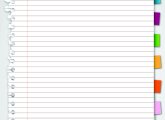OK. I'm going to just come out and say it... My name's Anna and I teach media studies. Well, actually, I spend most of my time teaching English, but I have a fondness for media studies. I'll ignore the mutterings of 'Mickey Mouse subject' and tell you why...
We all know that the study of mass media has its knockers (insert your own bawdy witticism here); the most prominent being Chris Woodhead, who has used words such as 'nonsense', 'farce' and 'vacuous' to describe the discipline. The Daily Mail has also delighted in whipping up moral panic with stories about children studying for a GCSE in Jade Goody and media studies being more heavily funded than maths. I think Woodhead and other media-maligners have failed to grasp two things: that media studies is relevant, and that it requires similar analytical skills to those used in English.
One hundred years ago, literature was one of the few forms of entertainment that could be accessed in one's home. For those with the necessary literacy levels, a book was the only way to transport oneself from the reality of one's parlour to the reverie of another world. Rightly so, the study of the written word has long been a key part of the curriculum.
But times have changed. A recent straw poll of my top set students (all targeted A-A*) revealed that just three out of the 28 were regular readers. Of course, some may have been hiding the dark, dirty – and, frankly, uncool – secret that they might enjoy getting lost in a book, but it seems that reading is definitely passé for a large portion of young people. These are all intelligent, academic pupils; so how are they using their leisure time? The answer is clear to anyone who is on nodding terms with a teen: social networking, gaming and – possibly bottom of the list – watching television. How do I know this? Because I spend a hell of a lot of time doing these things too (except for the gaming – I leave that to my husband). In fact I've been reading the same book for quite a while now because I keep getting distracted by things with pretty colours and pictures and lights.
Our lives are completely saturated with new technology that allows us to communicate through many different channels. 75% of people watch television with a mobile phone or tablet in their hand. This 'second screening' is commonplace among young people, who happily consume a TV programme and message their mates at the same time. How do I know? Again, because I do it, too.
I would never suggest that the study of books is obsolete; just that media has caught up with literature as a topic the relevance of which is worthy of study. What many people don't realise is that media studies is not just about watching loads of telly and making a film with your mates. It's about analysing texts using a strong grasp of semiotics; it's about identifying the influential factors behind these texts; it's about recognising the hidden agendas. In my opinion, the theory side of media studies teaches young people to be discerning consumers – to understand and identify how every piece of media is designed to manipulate its audience... much in the same way I teach my English literature students how Shakespeare influences his.
Finally, a large chunk of media studies is about using this analysis to recreate students' own texts, which are rewarded in the mark scheme for being 'fit for purpose'. This is something that involves developing IT skills, such as using macromedia packages and editing software, that employers are findingly increasingly important.
Whether we like it or not, the media has a huge influence on the lives of young people. It's crucial that they learn to take things served up to them with a pinch of salt, rather than swallow them whole – making the teaching of media studies, in my opinion, not just valid and useful, but essential.
What do you think?
Is there something bothering you that you need to share with your fellow secondary educators? Has everyone else, quite simply, got it wrong? Email editor@teachsecondary.com to make your point, and quite possibly become our next (anonymous) Voice of the Iconoclassroom...









